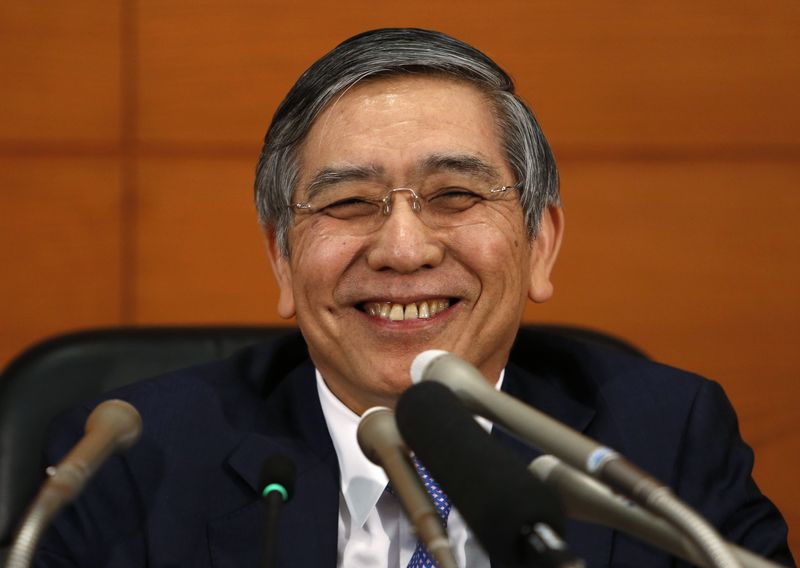By Leika Kihara
TOKYO (Reuters) - Bank of Japan Governor Haruhiko Kuroda on Friday dismissed views that the massive monetary stimulus programmes deployed by advanced economies were triggering a "currency war" of competitive exchange-rate devaluations.
Central banks across the globe, including others in Asia like South Korea and India, have joined the ranks of Japan and the euro-zone in loosening monetary policies to spur sluggish growth.
Kuroda said he did not see any sign of tension brewing between advanced and emerging economies on currency moves, shrugging off the view that countries are rushing to devalue their currencies to give their exports a competitive advantage.
"I really don't see any sort of currency war developing in the world now," Kuroda told a news conference at the Foreign Correspondents' Club of Japan in Tokyo.
"The monetary policy actions by the Federal Reserve, the BOJ and the European Central Bank have been made to achieve their price stability targets, not to depreciate their currencies," he said.
While central banks do not publicly admit it, loosening monetary policy, as the BOJ and ECB have done, has weakened their currencies, providing the key transmission channel for spurring growth.
The BOJ drew heat from some of Japan's trade competitors after the adoption of its "quantitative and qualitative easing" (QQE) in 2013 drove down the yen.
The euro hit a 12-year low against the dollar this week after the ECB joined the ranks in adopting quantitative easing.
DEFLATIONARY MINDSET REMAINS
With the Fed eyeing an interest rate hike this year, the diverging policies of advanced central banks have added to headaches for emerging economies by creating unpredictable cross currents in global markets.
Kuroda said central banks, including the BOJ, can learn much from the Fed as it exits its unconventional monetary policy.
But he stressed that the BOJ will maintain its huge stimulus and even expand it further on any signs of change in a broad uptrend in prices.
"We haven't completely eradicated the deflationary mindset," Kuroda said. "We have enough tools to combat deflation and achieve our price target," he added.
Kuroda countered criticism that the BOJ's stimulus programme was not working, arguing that consumer prices rose for 20 months in a row, the longest running streak since 1998.
Base pay rose last year for the first time in about 20 years, he added, voicing hope that companies will keep raising wages to encourage consumers to spend more rather than save.
The BOJ adopted in April 2013, and expanded in October last year, QQE to accelerate inflation to 2 percent in a country that has been mired in deflation for the past decade-and-a-half.
But core consumer inflation slowed to 0.2 percent in January due largely to the pressure from falling oil prices, keeping alive market expectations of further monetary easing.

Kuroda reiterated that markets should not expect the BOJ to ease again if the underlying slowdown in inflation was driven largely by lower energy costs.
(Additional reporting Stanley White; Editing by Chang-Ran Kim and Simon Cameron-Moore)